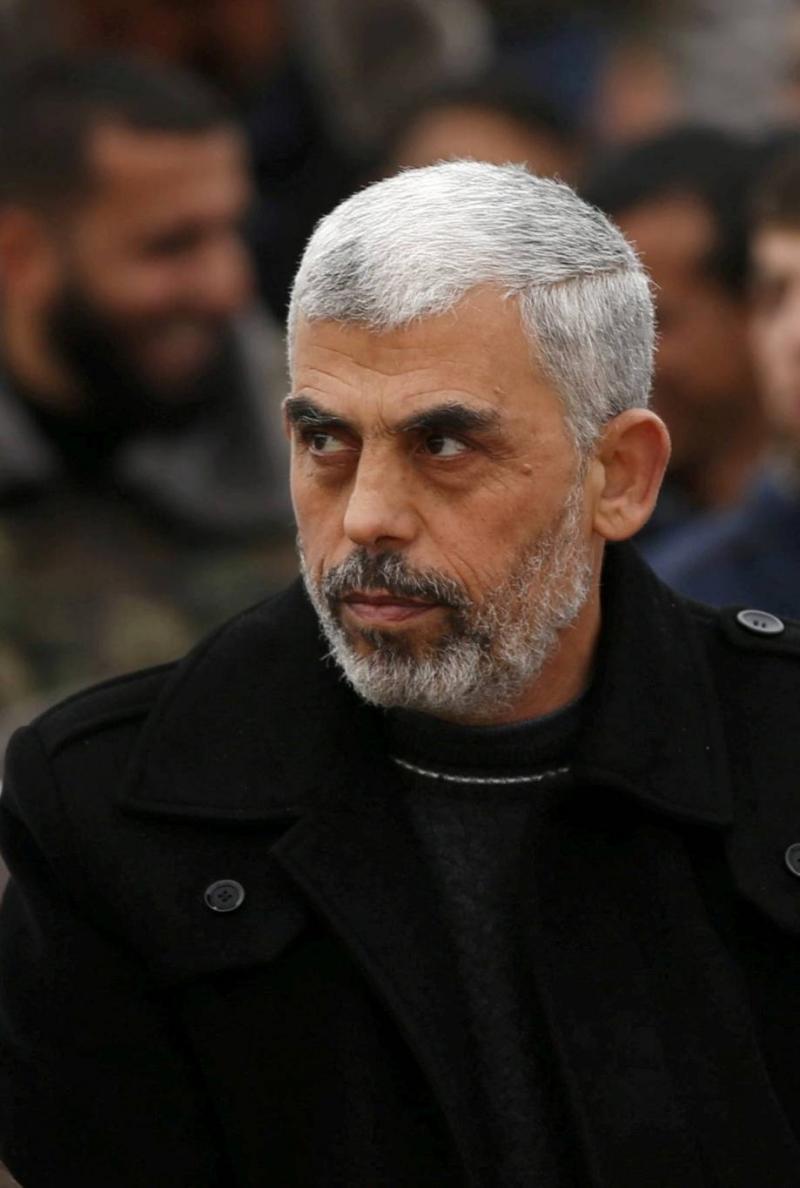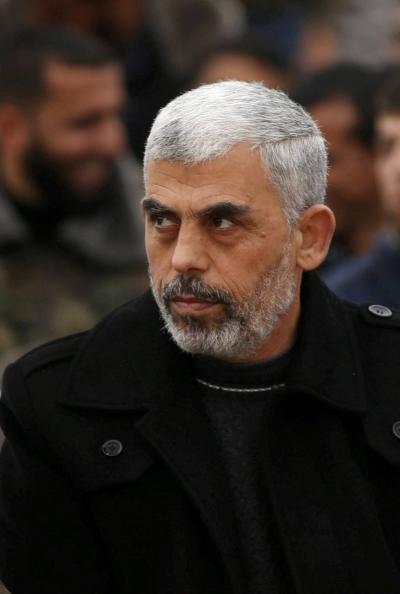Yahya al-Sanwar announced before a crowd in Gaza last year that Hamas would deploy fighters and rockets, directing a severe blow to Israel, which had imprisoned him for 23 years before his release and rise to a leadership role in the armed group. The speech delivered by the Hamas leader in Gaza before thousands of supporters had a rhetorical tone appealing to the masses. Less than a year later, Israel discovered that the speech was not just an empty threat, after Hamas fighters breached the Gaza fence. In his speech on December 14 last year, al-Sanwar claimed he would drown Israel "with a heavy flood and countless rockets."
### Secret Plans
At the time of the speech, al-Sanwar and Mohammed Deif, the overall commander of the Izz ad-Din al-Qassam Brigades, Hamas’s military wing, had already set secret plans for the attack on October 7, the deadliest day in Israel's 75-year history. In response to the attack, Israel bombarded and invaded Gaza, resulting in the deaths of over 15,000 Palestinians. Those who listen to al-Sanwar's words now find them a warning of what was to come, an attack that Hamas named "The Flood of Al-Aqsa."
### Negotiations
Three sources from Hamas told Reuters that al-Sanwar leads negotiations for prisoner and hostage swaps and manages military operations with Deif and another military commander possibly from underground hideouts in Gaza. A senior Israeli security official told reporters this week that al-Sanwar had an influence on the talks mediated by Qatar, which led to the ceasefire that ended this Friday after Israel released more than 200 Palestinian prisoners in exchange for the release of dozens of Israeli hostages held in Gaza.
### Al-Sanwar in the Tunnels
Released hostages reported seeing al-Sanwar in the tunnels in the days following the October 7 attack. Hamas and Israeli officials have not publicly commented on this alleged sighting. The issue of hostages and prisoner exchanges is of utmost importance to al-Sanwar, who has spent half his life behind bars and is committed to securing the release of all Palestinian prisoners held in Israel.
### List of Names
In his only statement since the attacks, al-Sanwar urged organizations caring for detainees to prepare names of Palestinians imprisoned in Israel, saying they would all return to their homeland. He himself was among the 1,027 Palestinians released from Israeli prisons in exchange for one Israeli soldier held in Gaza in 2011. During a large rally in Gaza after his release, he urged Palestinian resistance to commit to releasing the remaining prisoners and to transform this commitment into an immediate operational plan.
### "Living on Borrowed Time"
Al-Sanwar, 61, born in the Khan Younis refugee camp, was elected leader of Hamas in Gaza in 2017. Since October 7, Israel has considered al-Sanwar and other leaders as "living on borrowed time," according to Defense Minister Yoav Galant last week. Regional officials have indicated that Israel is unlikely to end the war before killing or capturing al-Sanwar. He has emerged as a figure known for carrying out his tasks ruthlessly, leading the security and recruitment apparatus "Mujd" which tracked, killed, and punished Palestinians accused of collaborating with Israeli intelligence before his imprisonment.
### Dedication to Hamas
Both Hamas leaders and Israeli officials familiar with al-Sanwar agree on his exceptional dedication to the armed movement. Hamas members residing in Lebanon describe him as rigid with an astonishing ability to endure. Michael Koby, a former official in the Israeli security agency Shin Bet who interrogated al-Sanwar for 180 hours in prison, noted his presence and clarity due to his ability to intimidate and lead. Koby once asked al-Sanwar, who was about 28 or 29 at the time, why he had not married. Al-Sanwar replied, "Hamas is my wife, and Hamas is my child. Hamas is everything to me."
### Early Imprisonment
Al-Sanwar was arrested in 1988 and sentenced to multiple life terms for planning the kidnapping and killing of two Israeli soldiers and for killing four Palestinians. In prison, he maintained his hardline stance against collaborators with Israel, as recounted by Israelis who interacted with him. Yuval Beitun, a former intelligence officer in the Israeli Prison Service, stated that at that time, "his hands were not stained with Jewish blood, but rather with Palestinian blood." Beitun, a dentist who treated al-Sanwar, said an Israeli medical team removed a tumor from al-Sanwar's brain in 2004. Beitun, whose nephew was among the hostages in Gaza, remarked, "We saved his life, and this is his gratitude."
### Commitment to Destruction
Koby commented that al-Sanwar has devoted his life to the mission of destroying Israel and killing Jews. An Israeli official described him as "psychopathic," adding, "I don’t think the way he perceives reality resembles that of more rational and pragmatic terrorists." Beitun added that the Hamas leader is willing to allow immense suffering for a cause, having once led 1,600 prisoners in a hunger strike even to the brink of death if necessary, protesting the treatment of two men in solitary confinement. He stated, "He is willing to pay any price for principle."




